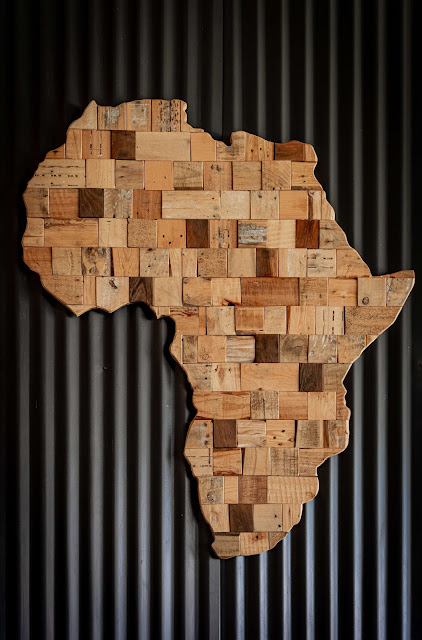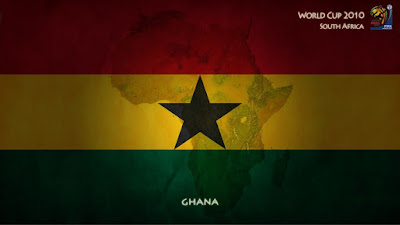Kwame Nkrumah was visionary leader who liberated Ghana from British Colonial rule in 1957 and dreamt of uniting Africa.
 |
| [African continent map] |
Today, we will commemorate the tale of a visionary leader who, in 1957, freed Ghana from British colonial domination and dreamed of unifying Africa.
During the post-colonial era, his principles of freedom, real independence, and Pan-African solidarity expanded across the continent and are still important today. Nkrumah survived five assassination attempts before being deposed in 1966 by a military coup.
Kwame Nkrumah, who died in 1972, left a legacy of progress, publications, and an everlasting legacy, as the phrase says, “Nkrumah Never Dies.”
Kwame Nkrumah, the son of a goldsmith and a retail merchant, was born in 1909 and attended Achimota College, a prominent Catholic institution in Ghana. He aspired to be a priest since he was an excellent religious student. However, as he grew older, he became more interested in politics.
In 1935, he traveled to the United States and enrolled at Lincoln University in Pennsylvania after graduating from Achimota. After graduating from Lincoln University and the University of Pennsylvania in 1939, he pursued a Master’s degree.
Kwame’s life was changed forever during that time. He was influenced by socialist literature, particularly the works of Karl Marx, Vladimir Lenin, and Marcus Garvey, which he studied extensively.
He rose through the ranks of the African Student Organization of the United States and Canada to become its president. In May 1945, Nkrumah departed the United States for England, where he organized the fifth Pan-African Congress in Manchester.
Meanwhile, the United Gold Coast Convention (UGCC) was founded in Ghana, then a British colony known as the Gold Coast, a first-of-its-kind party striving toward constitutional semi-government. Nkrumah was appointed general secretary of the UGCC and went home in late 1947.
Nkrumah became a target for the British colonial authority after protests and rioting clamoring for independence. In February 1948, he and other UGCC leaders were briefly detained.
After a split in the party, Nkrumah established the new Convention People’s Party (CPP) in 1949, which was devoted to a policy of rapid semi-government. Beginning in 1950, Nkrumah campaigned for a ‘positive action’ campaign that included nonviolent rallies, strikes, and a boycott of British colonial authority and businesses.
Nkrumah was caught for the second time and sentenced to a year in jail. The nation held its first general election in February 1951. For the hugely populous CPP, it was a done thing. After being freed from jail, he was elected to parliament and became Ghana’s first prime minister in 1952.
 |
| [Ghana flag] |
Ghana became the first country south of the Sahara Desert to proclaim its independence in 1957. He was also elected President of Ghana in 1960.
Kwame’s administration was largely rationalist and socialist in nature. Nkrumah advocated for the Africanization of the civil service while in office. By confronting the eurocentrism and racial supremacy inherent in British textbooks and cultural institutions, he implemented universal education and healthcare and developed a powerful national education system.
He was against the country’s weakening tribalism. Instead, he advocated for a Pan-African culture, which included worldwide libraries and collaborative endeavors to research history and culture. He founded the Ghana Museum, the Ghana Film Corporation, and the Ghana Arts Council. The Ghana News Agency, the Ghanian Times, and the Ghana Broadcast Corporation were all founded by him (GBC). He also set up an outside service that broadcasts in English, French, Arabic, Swahili, Portuguese, and Hausa.
Nkrumah’s economic success was all he had at the start of his presidency. Forestry, fishing, and cattle-breeding increased, as did cocoa output; Ghana’s major export quadrupled, and gold mining became more efficient. He also pushed for quick industrialization, building a dam on the upper Volta River to provide irrigation and hydroelectric power. Village initiatives involving the construction of schools and roads were also funded by the government.
 |
| [Accra-the capital of Ghana night view] |
For Nkrumah, energy projects were a significant deal because he regarded them as a way to achieve genuine economic independence. In 1961, he started the Ghana Nuclear Reactor Project, and in 1963, he formed the Ghana Atomic Energy Commission to pursue the nuclear project. He lay the foundation stone for an atomic energy project in 1964.
His achievements in international policy were no less impressive.
Kwame Nkrumah aimed for pan-African unity and harmony by integrating the continent’s political, economic, cultural, and military systems. He founded a number of new international organizations and hosted a number of conferences, including an All African Trade Union, an African Women’s Conference, and security cooperation over Algeria, South Africa, and French nuclear tests in West Africa.
Ghana was kicked out of colonial organizations including the West African Airways Corporation, the West African Currency Board, and the West African Court of Appeal.
He helped to form the Union African States, a political coalition comprising Ghana, Guinea, and Mali, in 1960. To that aim, in 1963, Nkrumah established the Organisation of African Unity (OAU) in Ethiopia’s capital, Addis Ababa, which now has 32 member countries.
The OAU’s goal was to achieve complete military, economic, and political unification.
1. To put an end to colonialism.
2. Increased collaboration between African governments 3. Defense of African states’ sovereignty, territorial integrity, and independence 4. Ensuring that all Africans have access to human rights
5. To improve the living conditions of all Africans.
6. To resolve differences and disagreements among member nations.
That is, in essence, what the European Union is now.
In 2002, the OAU was superseded by the African Union.
His trips and affiliations moved eastwards as a socialist. Because of his tour of Eastern Europe, the Soviet Union, and China, he found himself in the unpopular camp in Washington. He was seen as a potential menace who might expand Soviet influence over Africa and challenge Western military, economic, and cultural power.
But, for all of his good actions, many say that his concentration on exterior issues caused him to make some major blunders at home. Ghana went into debt to build the dam on the upper Volta River, and he went into much more debt when he started his development programs. He deployed aid and military forces to numerous African nations, including the Congo, Guinea, and Rhodesia, adding to his administration’s debt and the economy of the country. Assassination attempts against him boosted the size and strength of the internal security agency.
Ghana became a one-party state in early 1964, with Nkrumah as president of both the country and the party. The opposition in Ghana regarded this as a power grab.
The economic crisis, which was exacerbated by debt, overseas expenditure, misallocation of money, and falling cocoa prices, intensified, and food and other goods shortages became chronic.
Not just among the elite, but also among the general public, his popularity was waning. Protests and general strikes were a strong sign.
He was married to Fathia Ritzk, an Egyptian Coptic lady. He married her on New Year’s Eve, 1957-1958, on the evening of her arrival in Ghana.
He was also featured on a tune by British grime singer Stromzy, which introduced him to a new generation of listeners.
———————————-
Nkruma speech : “This decade is the decade of African Independence. Forward then independence to independence now tomorrow the United States of Africa.”
Nkrumah’s Independence Speech:
“We are going to see that we create our own African personality and identity. We again rededicate ourselves in the struggle to emancipation other countries in Africa: For our independence is meaningless unless it is linked up with the total liberation of the African continent.”
Nkrumah speech at UN :
“For today, we must each see ourselves as part of Africa in order that we may face to face colonist imperialism and its new form, neocolonialism on a continent wide front. For unity must be the keynote of our actions. Our enemies are many and they stand ready to pounce upon and exploit our very weakness.”
Nkrumah speech 2 :
“We cannot under any circumstances allow the imperialists and neo-colonialists to interlock with traitors in our midst, to deflect us from the path of duty and progress.”
[This article may resemble TRT World’s I Got A Story To Tell]










+ There are no comments
Add yours